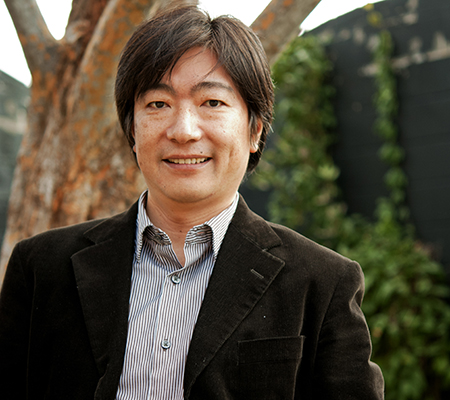
Researchers have a few more clues in the fight against autoimmune diseases, and it's thanks to research recently published in Nature Immunology. Led by Baylor Research Institute's Hideki Ueno, MD, PhD, the study has helped scientists learn more about a special cell known to be involved in autoimmunity, in which the body attacks itself. That insight, according to research, could someday change the treatment for autoimmune diseases, such as multiple sclerosis, lupus and rheumatoid arthritis.
The cell – called the follicular helper T cell or TFH cell for short – is a key factor in the autoimmunity equation. Typically, TFH cells help a person's body develop protective antibodies to help ward off disease. However, in cases of autoimmunity, TFH cells increase in number and actually cause the body to attack itself (instead of just attacking the disease).
In other words, it's a careful balance: Too few TFH cells aren't enough to fight diseases. Too many of them can cause the body to overcorrect and fight itself.
"That's why TFH cells need to be regulated, and to really understand that mechanism we need to understand how TFH cells are generated," said Dr. Ueno, an investigator at the Baylor Institute for Immunology Research who has discussed T cells before in a web "Ask the Expert" video. Dr. Ueno's research has focused on the topic for eight years.
In the past, the development of TFH cells puzzled researchers, but Dr. Ueno's newly published research identifies how those TFH cells come about. According to the study's results, the cellular progression involves a pair of proteins called interleukins (IL). When two kinds of those white blood cell proteins, called IL-12 and IL-23, join with another kind of protein (transforming growth factor beta, or TGF-β for short), it can induce TFH cell generation.
The results were the opposite of previous research, which showed that TGF-β inhibited (not triggered) TFH cell generation. In any other case, opposing findings would raise eyebrows, but there was one stark difference. Those prior studies investigated mice, and this research – for the first time – studied humans.
"It's understood that this trait is unique to human immunology," said Dr. Ueno, who added that this finding in particular surprised the team.
Another important finding was the fact that TFH cells in humans developed much like T helper 17 cells, or Th17 for short, which protect against bacteria. "It's important," Dr. Ueno said, "because both TFH cells and Th17 cells play a detrimental role in many human autoimmune diseases."
"It's directly related to a systemic approach for autoimmune disease," Dr. Ueno added.
While more research is needed, the findings reveal much about what exactly causes autoimmune diseases. With that information, scientists can better block and treat them in the future.
"This study identified important mechanisms that cause autoimmunity disease in humans," Dr. Ueno said. "By targeting these mechanisms, we may be able to block the development of autoimmune disease and that could be extremely useful in treating patients."
"Lupus, rheumatoid arthritis and multiple sclerosis," he added, "could all be very good candidates for that future research."
About Baylor Scott & White Health
As the largest not-for-profit health system in the state of Texas, Baylor Scott & White promotes the health and well-being of every individual, family and community it serves. It is committed to making quality care more accessible, convenient and affordable through its integrated delivery network, which includes the Baylor Scott & White Health Plan, Baylor Scott & White Research Institute, the Baylor Scott & White Quality Alliance and its leading digital health platform – MyBSWHealth. Through 51 hospitals and more than 1,200 access points, including flagship academic medical centers in Dallas, Fort Worth and Temple, the system offers the full continuum of care, from primary to award-winning specialty care. Founded as a Christian ministry of healing more than a century ago, Baylor Scott & White today serves more than three million Texans. For more information, visit: BSWHealth.com
